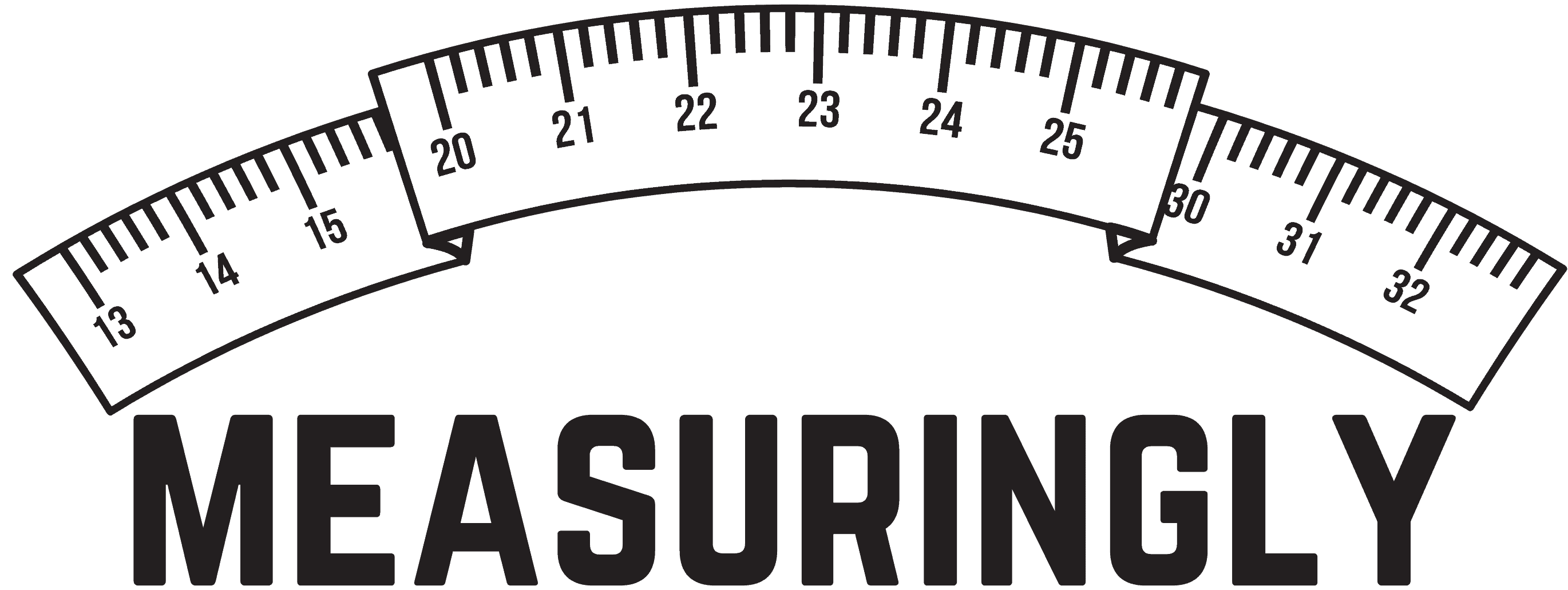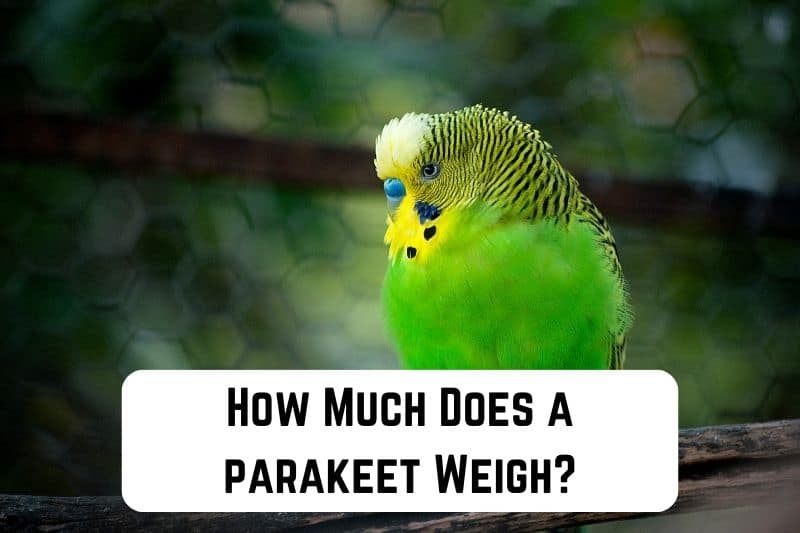As a parakeet owner, I know just how important it is to understand the health and well-being of our feathered friends. One key aspect of this comes in the form of learning the average weight of a parakeet.
Before we dive into the details of parakeet weight, it’s essential to recognize that these birds, also known as budgies, come in various shapes, colors, and sizes. This means the weight can vary depending on the bird’s breed and age.

Monitoring our parakeets’ weight is vital for their health. By knowing the average weight and observing any changes, we can detect potential health issues early and ensure their well-being. Let’s keep a close eye on their weight and give them the best possible care!
Read: How Much Does a Chair Weigh? (Detailed Guide)
In terms of size, parakeets measure around 18 centimeters (7 inches) in length from their head to the tip of their tail. Generally, they weigh between 25 to 40 grams, with an average weight of around 30 grams.
Parakeet Overview
When I think of a parakeet, the first thing that comes to mind is their vibrant colors and energetic personalities. Parakeets, also known as budgerigars or budgies, are small birds native to Australia. They are popular as pets due to their playful nature, social tendencies, and relatively low maintenance requirements.

Generally, they weigh between 25 to 40 grams, with an average weight of around 30 grams. This is roughly the same as a couple of tablespoons of sugar.
In terms of size, parakeets measure around 18 centimeters (7 inches) in length from their head to the tip of their tail. Their wingspan typically ranges between 25 to 30 centimeters (10 to 12 inches). Males are usually slightly larger than females, with marginally broader wings and a larger build.
Given their small size and weight, it’s fascinating to watch parakeets fly around quickly, their agile frames allowing them to navigate their surroundings easily.
Common Weight Range of Parakeets

As a parakeet enthusiast, I’ve always been interested in the variations between different species. These small, colorful birds tend to vary not only in size but also in weight depending on their species and individual factors like age, diet, and level of activity.
Australian Budgerigars, commonly known as budgies, are the most popular pet parakeets. They usually weigh between 25 and 35 grams. The males tend to be slightly heavier than the females, but the difference is insignificant. Their small size makes them an ideal pet for bird lovers with limited space at home.
Here’s a quick comparison of some other parakeet species and their average weight:
- Monk Parakeet: 100 – 150 grams
- Indian Ringneck: 115 – 140 grams
- Alexandrine Parakeet: 200 – 300 grams
- Eclectus Parrot: 375 – 600 grams
As you can see, there is quite a range in the weight of parakeets! It’s essential to be aware of your parakeet’s weight to provide them with proper care. If you notice a significant change in your bird’s weight, it could indicate a health issue, so monitoring it regularly is essential.

In addition to a healthy diet, regular exercise and mental stimulation are crucial for maintaining an ideal weight. A well-rounded diet consists of high-quality pellets, fresh fruits, vegetables, and the occasional treat.
Providing your parakeet with a comfortable environment, toys, and a safe place to exercise, such as a playpen or flying room, can all contribute to their overall health and happiness.
Factors Influencing Parakeet Weight

When I was researching about parakeet weight, I discovered that several factors can influence their size and weight:
Age: Younger parakeets generally weigh less than fully grown adults. As they grow and develop, their weight will naturally increase. Adult parakeets typically weigh between 25 and 40 grams.
Diet: A parakeet’s diet can significantly affect its weight. A well-balanced, nutritional diet is essential for maintaining a healthy weight. Foods high in fat, like seeds, can cause parakeets to become overweight, while a diet lacking the necessary nutrients can lead to underweight birds.
Exercise: Just like us, parakeets need regular exercise to maintain their optimal weight. Providing a spacious and engaging environment, along with toys and perches, can help encourage your parakeet to stay active and burn off excess energy, thus preventing weight gain.
Genetics: Some parakeet species are naturally heavier or lighter than others. For example, the Budgerigar typically weighs around 30 grams, while the Monk Parakeet can weigh up to 100 grams. Knowing your parakeet’s specific species can help set a baseline for their ideal weight range.
Health: Various health conditions, such as thyroid issues or respiratory infections, can cause fluctuations in a parakeet’s weight. If you suspect your parakeet’s weight is being affected by a health issue, it’s essential to consult with a veterinarian to determine the best course of action.
Monitoring your parakeet’s weight regularly and providing proper care can help them maintain a healthy weight throughout their lives.
How Parakeet’s Weight is Measured?

When I weigh my parakeet, I usually use a small digital scale. These scales are specifically designed for small pets, like parakeets, and can be found online or in pet stores.
They typically have a platform, either flat or with a perch, where the bird can comfortably stand. It’s crucial to ensure the scale is calibrated and has a tare function to discount any weight from objects placed on it.
Weighing process:
- Turn on the scale and ensure it is calibrated.
- Place a lightweight container or perch on the scale.
- Tare the scale to zero.
- Gently place the parakeet onto the container or perch.
- Record the weight displayed on the scale.
It’s essential to weigh your parakeet regularly to monitor their health.
Impacts of Weight on Parakeet Health
Diet and Exercise

As a parakeet owner, I closely observe my bird’s diet and exercise habits. A balanced diet, including pellets, seeds, fruits, and vegetables, is essential for their overall well-being. Providing various types of food can ensure they receive the needed nutrients and vitamins.
Parakeets need exercise for muscle maintenance and mental health. Allowing them to fly and climb outside the cage helps with calorie burning and staying active.
Read: How Much Does a Human Tongue Weigh? (60 to 70 grams)
Obesity in Parakeets

Sadly, obesity is a prevalent issue among parakeets. Overweight parakeets can suffer from health complications, such as fatty liver disease, heart problems, and decreased mobility. Signs of obesity in my parakeet might include heavy breathing, lethargy, and difficulty moving around the cage.
I keep my parakeet healthy and happy by tracking its weight and food intake and encouraging exercise and playtime.
Frequently Asked Questions
What is the average weight of a budgie?
As a parakeet enthusiast, I can share that adult budgies, commonly called parakeets, usually weigh between 30 and 40 grams. However, remember that size variations can occur so that some budgies might weigh more or less depending on their individual characteristics.
How can I tell if my parakeet is overweight?
Keeping an eye on your parakeet’s appearance and behavior is crucial. An overweight parakeet may show a large, rounded abdomen and have difficulty perching, flying, or breathing. Compare your parakeet’s weight to the average budgie weight (30-40 grams) for an idea of its status.
What factors can affect a parakeet’s weight?
Taking care of your parakeet’s weight is essential and can be affected by various factors like diet, genetics, exercise, and health. Don’t hesitate to seek advice from a vet if you have any concerns.
Do male and female parakeets differ in weight?
From what I’ve observed, there isn’t a significant difference in weight between male and female parakeets. The average weight range of 30 to 40 grams applies to both sexes. However, individual parakeets may have slight differences in mass due to factors such as genetics or overall health.
Does a parakeet’s age impact its weight?
As parakeets mature, their weight stabilizes, usually around 9-12 months. However, older parakeets may experience weight changes due to age or health conditions. Regular consultation with a vet and monitoring their behavior is essential.







